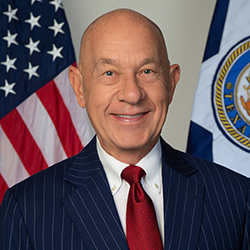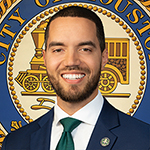It’s hard not to get really effing discouraged sometimes.
Houston City Council voted 9-4 to renew its membership in the Houston-Galveston Area Council Wednesday after fiery discussions over whether the city’s continued involvement violated the city charter.
Council Members Tarsha Jackson, Abbie Kamin, Edward Pollard and Letitia Plummer voted against renewing the city’s H-GAC membership. Council Members Julian Ramirez, Tiffany D. Thomas and Twila Carter were all absent from the meeting.
H-GAC is the 13-county regional planning body made up of more than 100 Houston-area governments that is responsible for distributing federal funds for major projects that include infrastructure, climate mitigation and workforce development.
Wednesday’s vote to remain part of H-GAC comes after Houstonians in November enthusiastically approved a ballot measure that was meant to give Houston and Harris County “population-proportional” representation on the council, or leave the organization entirely.
Advocates of the measure argued that Houston and Harris County have been shortchanged on funding decisions for flood relief and overruled on major decisions such as the Interstate 45 expansion, despite being home to the majority of the region’s residents.
[…]
City Attorney Arturo Michel said Wednesday that withdrawing from H-GAC was not as simple as Proposition B laid it out to be. A decision not to renew, Arturo argued, would violate state and federal laws that dictate that a region’s largest city must be part of a metropolitan planning organization — in this case, H-GAC’s Transportation Policy Council.
Michael Moritz, an organizer with Fair For Houston, the organization that championed Proposition B, said that while he appreciated the council’s discussion, he was “disappointed” with Michel’s interpretation of the laws.
Michel repeatedly stated that withdrawing from the Transportation Policy Council would require approval from Gov. Greg Abbott and a three-fourths vote from the council’s membership. In actuality, federal transportation code indicates that representatives of 75% of the area’s population — not 75% of the council’s members — must approve a redesignation, a point that Michel himself clarified toward the end of the discussion.
Because Houston makes up more than 25% of the area’s population, the city essentially has veto power over any redesignation agreements, Moritz said. Given that the Transportation Policy Council will have to renegotiate its structure to accommodate new members from Austin County and the Woodlands by 2026, he argued the renewal vote offered a good opportunity for Houston to exercise its leverage.
“The campaign’s position is that the city should not be renewing its membership now, it should be issuing notice to the TPC that the city is in violation of its charter and that it holds leverage over redesignation, and that good faith negotiation is the solution,” Moritz said.
See here for the previous update. Mayor Whimire’s answer for this, which seems to be his answer for a lot of things, is that he’ll go ask his buddies in Austin for help in fixing this, whatever that means. Maybe he can get something done – again, first we need to know what that “something” might be – but my concern here is what it has always been, which is that Greg Abbott and the Republicans in the Lege have no incentive to help Houston out. Why would they? They don’t care about Houston. We’re an unruly and disagreeable force that they want to contain and control.
I have sympathy for CM Sallie Alcorn, who is currently serving as the H-GAC Chair and who would be in a very awkward position if the city had held out. She’s one of the good guys and she’s doing what she can to make things better. The bigger problem here is that now for the second time in less than one year of the Whitmire administration, we are blatantly ignoring the outcome of a clear and decisive election. It was bad enough that Metro under Whitmire’s chosen Chair decided that the 2019 election didn’t happen. Now City Council, minus the four members listed above, has voted to ignore the 2023 election. What do we need to do around here to make an election count?













